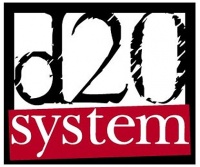
A few weeks back, we let you know that Wizards of the Coast was cracking down on abusers of the Open Gaming License for its d20 game system (see 'WotC To Enforce d20 Discipline'), and promised a follow-up after we'd had a chance to talk to some more members of the industry. The first thing that struck us as we worked on this story was the number of publishers and products involved. One site that lists d20 publishers has over seventy company names listed, from Wizards of the Coast, which developed the d20 system for its Dungeons and Dragons Third Edition, on down to names that were obscure to the point of invisibility.
Everyone that we talked to agreed that there had been abuses of the Open Gaming License in two main forms. Some companies published works incorporating characters or other proprietary elements of Dungeons and Dragons. These elements are not part of the Open Gaming License and cannot be used by other companies. Other companies were publishing works without the proper notices. One publisher told us, 'I was screwing up the notices. I'm glad they brought it to my attention because I want to do it right.'
Reactions to WotC's crackdown were generally positive. Publishers appreciated the reminders and were glad to see that everyone was being handled equally. Everyone seemed to realize that the success of the d20 system relies on WotC being able to continue to share the underlying mechanics of its game system while retaining its rights to the other elements of its game that it's created. And while most seemed to agree that many different d20 products created a buzz around the system that was positive, more than one member of the industry expressed the sentiment that it was good that some publishers would be weeded out by the more rigorous enforcement of the terms of the license.
It may be that smaller publishers are already being weeded out by the Darwinian economics of the retail marketplace. Now that there are so many d20 releases, retailers have stopped ordering most new d20 products, supporting only those from companies that have done well for them in the past or that have something special or notable associated with them. One retailer commented that 'If I can sell twenty d20 modules, I can probably sell either two each of ten different titles, with the associated costs and unsold copies sitting on the shelf, or I can sell ten each of two different ones and keep my costs and risks low.'
Part of the confusion may have been due to the fact that there are actually four different types of products involved. For a full description of the various incarnations of games involving the d20 System and the Open Gaming License, see 'd20 Explained.'
There has also been some discussion recently of the idea that RPGs as a whole might sell better if they all used the same basic game mechanics. If players find it easier to switch from game to game, they may try more different products, ultimately becoming more satisfied consumers that spend more than they would have in a world with many competing systems of game mechanics. This was undoubtedly part of the motivation for WotC making its d20 System available to other publishers in the first place. While everyone seems to agree that a lot of games using the d20 System is a good thing, especially for new players, most weren't ready to make it a d20 world.
Tim Avers of White Wolf (which is pretty involved in the d20 phenomenon, see 'White Wolf To Publish Ravenloft,' and 'White Wolf to Publish Fiery Dragon d20') told us that 'People are looking for different things from games,' and that '...some games have mechanics that fit other genres better.' He used the examples of a military simulation game like Chainmail, compared to a game like Traveller with mechanics based on higher math, or Storyteller, a play action system. In Avers' view, the individualized mechanics in each game are better fits than the d20 System could ever be.
Corsair's Jon Leitheusser (publisher of Campaign, a magazine devoted to the d20 System, see 'Corsair To Publish d20 Magazine') concurred that multiple systems of game mechanics are preferable to a single system. He pointed out that while new players might find it easier to switch between games if they all used the same basic game mechanics, more sophisticated players actually enjoy the challenge of learning a new system of mechanics.
In the past year since WotC released D&D 3rd Edition and made the dramatic move of opening up the underlying d20 System for use by other publishers, there has been a classic boom and bust cycle, with a rapid expansion in the number of products based on the d20 System followed by the current contraction/consolidation phase. The WotC crackdown on users of its System will help to rationalize the landscape during this phase and keep the d20 System a strong system on which many successful products can be based.


